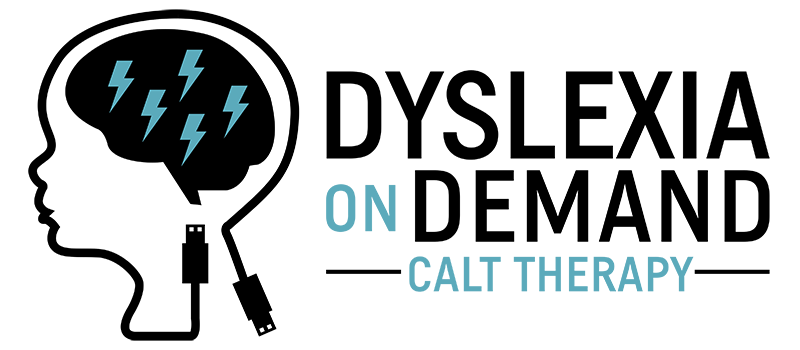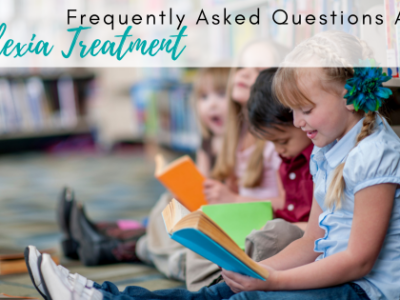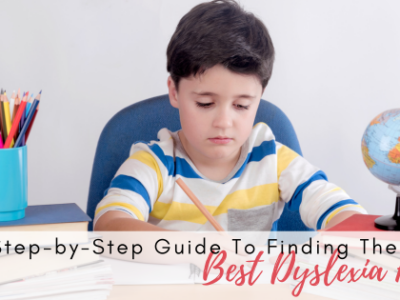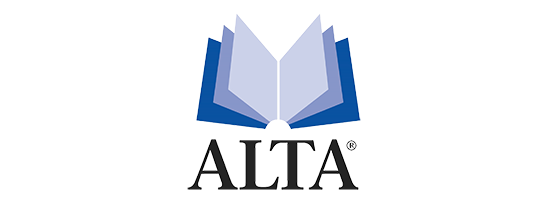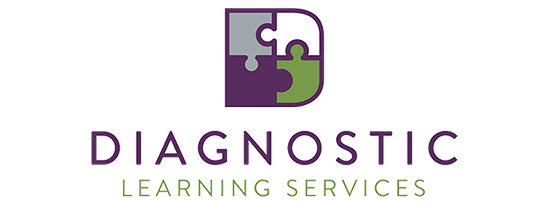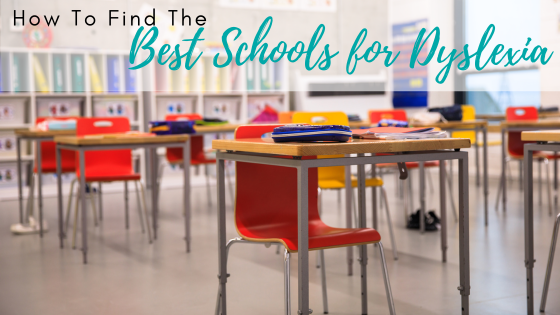
How to Find the Best Schools For Dyslexia
When you become a parent, you suddenly have thousands of decisions to make on behalf of another human. From what brand of diapers to choose to what kind of milk you supply, there are so many things to think about when raising children. Perhaps one of the most—if not the most—important decisions you’ll make as a parent is choosing a direction for your child’s education. There are plenty of factors to consider regarding schooling, such as convenience and location as well as the overall educational philosophy.
When you are a parent of a student who has a learning disability like dyslexia, the choices become a bit more complex. You want to support your child with the best tools for learning, but you may still want him or her to experience regular daily life in the social setting of school. As with so many parenting decisions, it is ideal to do footwork and research to seek out the best options for your child’s education. Read on to learn more about schools for dyslexia.
Seeking out the right fit for your child. Children with learning disabilities need to feel comfortable in their school environment. Here are a few key questions to ask when you’re choosing a school for your student with dyslexia:
- Are support services available for your student, including dedicated professionals?
- Will the school put learning interventions and/or accommodations in place for your student?
- Is there collaboration among teachers and support services?
Public, Private, or Homeschool? Both public and private schools can provide a suitable learning environment for students with learning disabilities. Homeschooling is another option that many parents choose in order to offer their students an individualized education experience. There are plenty of factors to consider when choosing among these options.
- Public schools: At public schools in the United States, there is typically a standardized curriculum in place that is taught by certified teachers. In public school, class sizes tend to be larger. One great benefit of these schools is that they’re required to provide services to students with learning disabilities. Schools may work with students, families, and professionals to get an Individual Education Plan (IEP) in place. Different states have different dyslexia laws that determine eligibility for specific instruction, IEPs, and 504 plans. Overall, there are some supports and services in place in public schools that aim to help students with academic success. However, it is important that families and parents be involved with understanding their students’ needs and which solutions are being used in their public schools.
- Private schools: When it comes to educating a student with learning disabilities, private schooling is not necessarily always the best option. Factors such as finances, different schools design learning about students with learning disabilities, offer a certification prerequisites for teachers, and a lack of legal requirements for support services may influence decisions when it comes to choosing private or public schools. Private schools often do not have support for students with diverse learning needs but may support and help facilitate outside support, such as Dyslexia on Demand.
- Specialized private schools: It is important to note that throughout the United States, there are several schools that are specifically dedicated to teaching students with dyslexia. These schools for dyslexia offer more personalized education plans, and have much smaller class sizes. Though there can be great benefits to these schools, sometimes, this specialization comes with a very high price tag.
- Schooling at home: Some parents choose homeschooling in the setting of either one-on-on or small groups. For students with dyslexia, this setting offers a tailored experience and flexibility. However, it requires a lot more footwork and curriculum planning from parents, and it also removes students from the mainstream social setting of a typical school.
Advocacy is key. No matter which option you choose for your child’s education, taking on the role as an advocate will be essential. Navigating the school systems and methods to support your student with dyslexia can be tough at times. Meet with teachers. Understand the offerings for support services. And—most importantly—check in with your child. Staying connected with your child’s team of teachers and specialists through phone calls, emails, and meetings will be part of the educational journey that you’re on as well.
Dyslexia on Demand can help you—no matter what school you’ve chosen for your child. At Dyslexia on Demand, we have figured out the best way to help students with dyslexia to succeed. We offer services in dyslexia therapy, which is different than typical classroom interventions and dyslexia tutoring. Our programs work to fundamentally shift your student’s cognitive learning process in order to improve their reading skills as well as their overall academic experience.
What does Dyslexia on Demand do?
- Dyslexia therapy sessions are convenient; sessions are live, online meetings.
- Meetings are tailored to each individual student and done consistently with the same therapist.
- The programs we use for dyslexia therapy are evidence-based language interventions.
- Each student works with a highly qualified Certified Academic Language Therapist.
- The best benefit becomes a student’s positive approach to reading and motivation to learn.
Reach out to us. You have invested so much time and so many resources in seeking the best educational options for your child. Dyslexia on Demand can support you and your student in improving their language skills, boosting their confidence, and experiencing true success. Contact us for more information.
